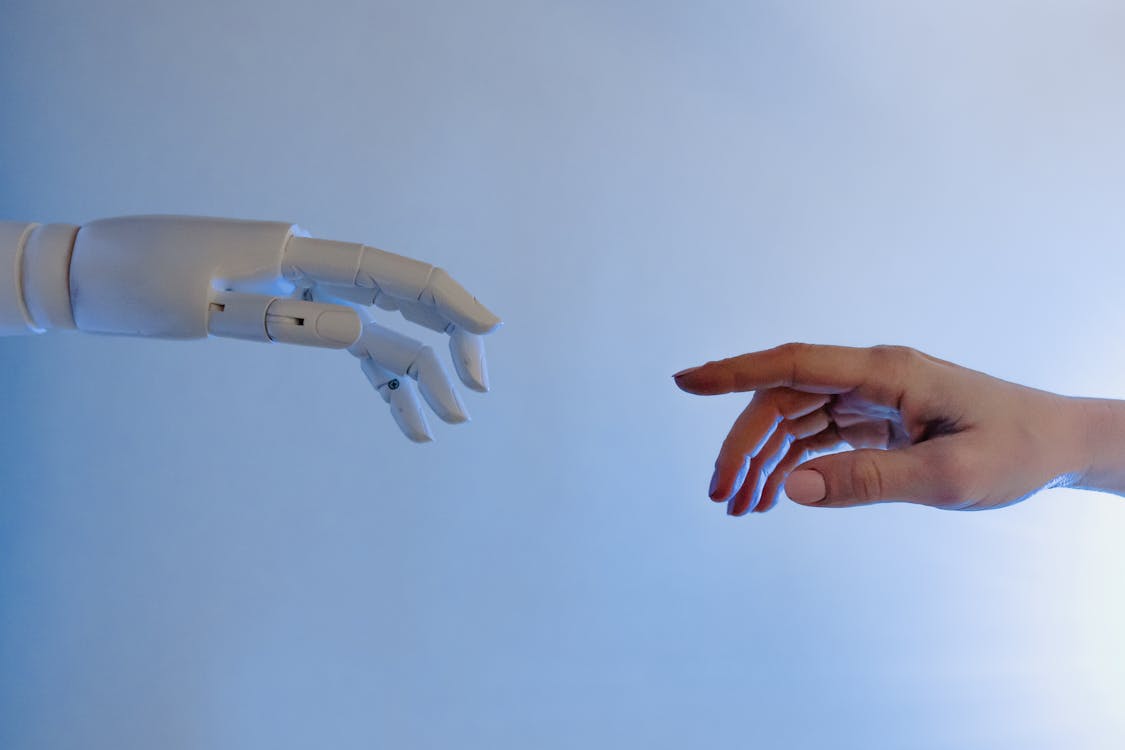In the age of rapid technological advancements, the debate surrounding Human vs AI decision-making has gained significant traction.
As AI becomes increasingly integrated into various aspects of our lives, it's crucial to understand how it compares to human decision-making processes.
In this article, we delve into the intriguing realm of decision-making, exploring the impact of AI on this fundamental aspect of human existence. We'll examine the advantages and limitations of both approaches while recognising the unique strengths that each brings to the table.
AI Decision Making: Data-Driven Precision

AI Decision Making, photo by Tara Winstead on Pexels
Artificial Intelligence, or AI, has emerged as a powerful tool in decision-making due to its data-driven precision. AI algorithms can analyse vast amounts of information in a fraction of the time it would take a human. Whether it's crunching numbers for financial forecasts or processing complex patterns in medical data, AI excels at delivering accurate and unbiased results.
Presently, AI's involvement in strategic decision-making remains limited, primarily centered around rules engines. Nonetheless, the real question lies in understanding the disparities between human and machine reasoning and decision-making capabilities. Are machines on the verge of acquiring comparable skills, or is it even possible to replicate our cognition?
In the 1980s, Hans Moravec and a group of researchers predicted that robots would match or even exceed human intelligence by 2040; this is also known as Moravec Paradox. Additionally, Marvin Minsky, a fellow researcher, also emphasised that the most difficult human skills to reverse engineer are those below the level of conscious awareness.
AI's ability to adapt and learn from its own experiences, also known as machine learning, allows it to refine its decision-making capabilities over time. This continuous improvement empowers AI to make more informed choices, offering valuable insights that human decision-makers might overlook.
Human Decision Making: Consciousness and Self-Awareness

Human Decision Making, photo by Andrea Piacquadio on Pexels
Taking a more optimistic stance, many experts and researchers believe that human intelligence is unparalleled in its complexity. It is a remarkable fusion of biological and cognitive processes intertwined with the enigmatic nature of consciousness and emotions. Our brains, weighing just around three pounds of mush, hold an intricate network of neurons and synapses that facilitate the marvels of human cognition.
At the heart of this uniqueness lies consciousness—the very essence of self-awareness and subjective experience. While we are still uncovering the mysteries of consciousness, its presence is undeniably a fundamental aspect of human intelligence. The ability to perceive the world, reflect upon our thoughts and emotions, and possess a sense of identity sets us apart from machines.
Our Emotions Matters
Our capacity to feel empathy, compassion, joy, and sorrow impacts our choices and actions. Emotions often guide us to make decisions that align with our values, contribute to our social bonds, and lead fulfilling lives. This intricate interplay of intellect and emotions adds depth to our decision-making processes, making them more nuanced and adaptive.
Unlike machines, our intelligence is not solely defined by logical algorithms or data processing. Instead, it emerges from a complex interplay of conscious experiences, cultural influences, learning, and personal growth. The amalgamation of these factors contributes to the richness and flexibility of human decision-making.
However, there is something we should note; it’s called cognitive bias, as it might limit us in the decision-making process.
The Cognitive Bias and Its Impact on the Decision-Making Process

The Cognitive Bias, photo by Christina Morillo on Pexels
Now let’s explore the cognitive bias within our mind and its impact on decision-making.
Why do we have biases if they're considered 'bad'?
Biases are ingrained deeply in our minds, and some argue that the methods used to test their negative effects don't consider many real-world factors. When making strategic decisions, we often face extreme uncertainty, intense competition, and numerous unknown and uncontrollable variables.
Pattern Recognition
Our brains are exceptional pattern-recognition machines. Biases can emerge from our tendency to recognise patterns even when they might not exist. This pattern-seeking behaviour helps us make sense of the world and identify familiar situations quickly. However, it can also lead to biases like the availability heuristic, where we rely on easily recalled information rather than seeking a broader perspective.
Emotional Influence
Emotions play a significant role in shaping our biases. Our feelings can colour our perceptions and influence the information we seek and consider during decision-making. Emotional responses evolved to motivate us and guide our actions, but they can also cloud our judgment, leading to biased decisions.
The Synergy of Human-AI Collaboration
Rather than a contest between Humans vs AI, the true potential lies in harnessing the synergy of their collaboration. Combining AI's analytical prowess with emotional intelligence's human touch can lead to more robust and holistic decision-making.
AI can assist humans in processing and analysing vast datasets, presenting relevant information in a clear and organised manner. This, in turn, empowers humans to make more informed decisions, leveraging their intuition to weigh the outcomes thoughtfully.
Conclusion
In the ongoing debate of Human vs AI on Decision Making, it is clear that both approaches offer unique strengths and limitations. AI provides unparalleled data-driven precision and continuous improvement, while humans contribute emotional intelligence and creative intuition. Rather than viewing them as competitors, we should strive to create a symbiotic relationship where AI enhances human decision-making capabilities and humans provide essential oversight and ethical considerations.
By embracing the collaborative potential of Human-AI partnership, we can navigate complex challenges more effectively and create a future where the best of both worlds coexist to improve decision-making processes for the benefit of society.




